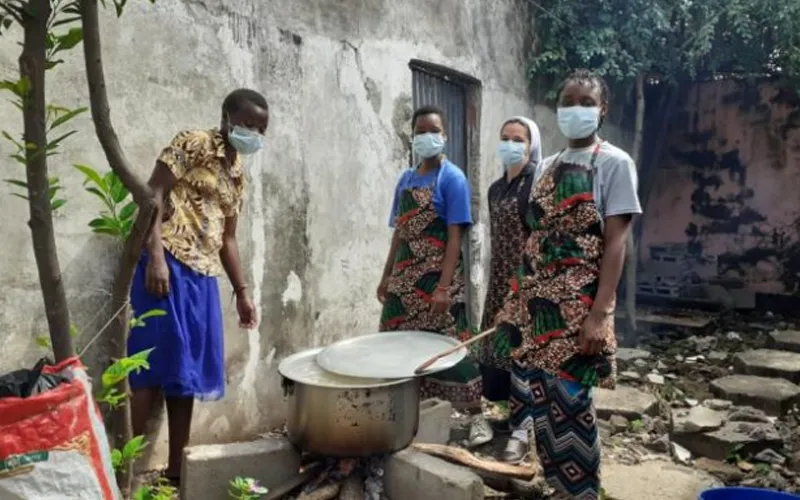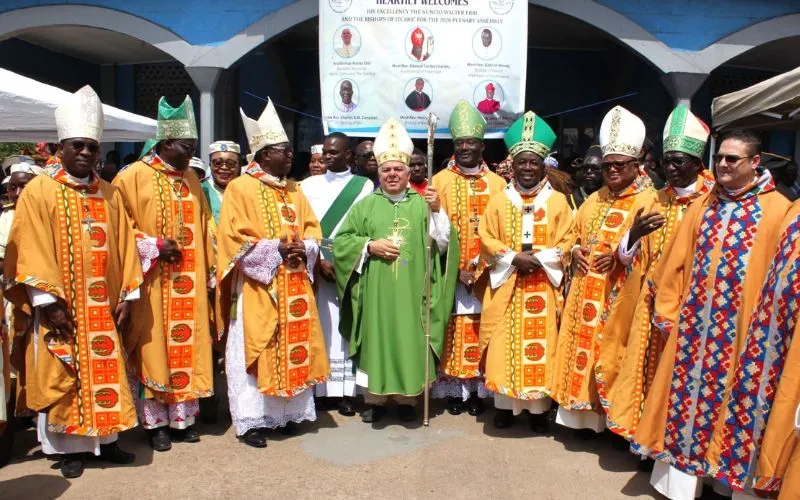“Whatever the world is seeing now has been going on in Mozambique for years. We have tried to talk about it but no one cared to listen,” the DHPI official told ACI Africa March 30, and added, “There is a global uproar now because a handful of foreigners were affected. But this has been going on. More than 3,000 innocent Mozambicans have died in this violence and no one cared.”
The Cabo Delgado region has been the scene of attacks by armed groups claiming allegiance to ISIS since October 2017, leading the region into a situation of a deep humanitarian crisis.
According to the UN, there were more than 670,000 displaced people and more than 2,500 dead at the end of last year.
ACN notes that with the recent attacks including the one on Palma, the situation has worsened.
“The attack on Palma is a clear escalation of the conflict. Palma was an important place; in the district of Palma, it is estimated that there were more than one hundred thousand people; in addition to the local inhabitants, already more than 40,000 people had sought refuge there, fleeing previous attacks in other districts. What could be more tragic than to flee like prey from one place to another,” said Mr. Kny.
(Story continues below)
Working with the Catholic Church to help alleviate the suffering especially of the displaced people, the charity foundation has provided an initial emergency grant of US$200,000.00.
ACN has also been supporting the livelihoods of Priests and Religious Sisters in the region, as well as funding the training of Seminarians, as well as other projects related to the most pressing needs of the Church in Mozambique.
“We must increase our financial support and prayers for the Church in Northern Mozambique. In view of the expected drastic increase in the influx of refugees, Mr. Kny says, noting that it is only through support from the outside that the Diocese of Pemba and the neighboring Dioceses, which are already completely overwhelmed by the humanitarian disaster, will be able to increase their work.
The official of the Pontifical Charity Organization underscored the need to act fast to stop what he refers to as “unrestrained violence” in Mozambique’s Northern territories.
“Let us pray for the people, for all those who have lost everything and all those who are missing or in hiding. The world cannot ignore this drama,” Mr. Kny says.
Meanwhile, in a Tuesday, April 6 update on the situation in Mozambique, Mr. Viljoen told ACI Africa that the leadership of the Catholic Diocese of Pemba was working to provide comfort and consolation to residents of Palma who had fled their homes and were now seeking refuge in Southern parts of the town.
Highlighting activities at one of the Catholic Priest at a Parish in Pemba where new IDPs are currently being received, the DHPI official told ACI Africa, “In a beautiful display of solidarity, Fr Edegard’s parishioners in Pemba have been daily feeding more than 300 families, newly arrived from Palma.”
Images shared by the SACBC institute show Muidumbe IDPs preparing a meal for new arrivals from Palma on Easter Sunday. Muidumbe is a district in Cabo Delgado, Northern Mozambique that has also experienced insurgency.
Agnes Aineah is a Kenyan journalist with a background in digital and newspaper reporting. She holds a Master of Arts in Digital Journalism from the Aga Khan University, Graduate School of Media and Communications and a Bachelor's Degree in Linguistics, Media and Communications from Kenya's Moi University. Agnes currently serves as a journalist for ACI Africa.








